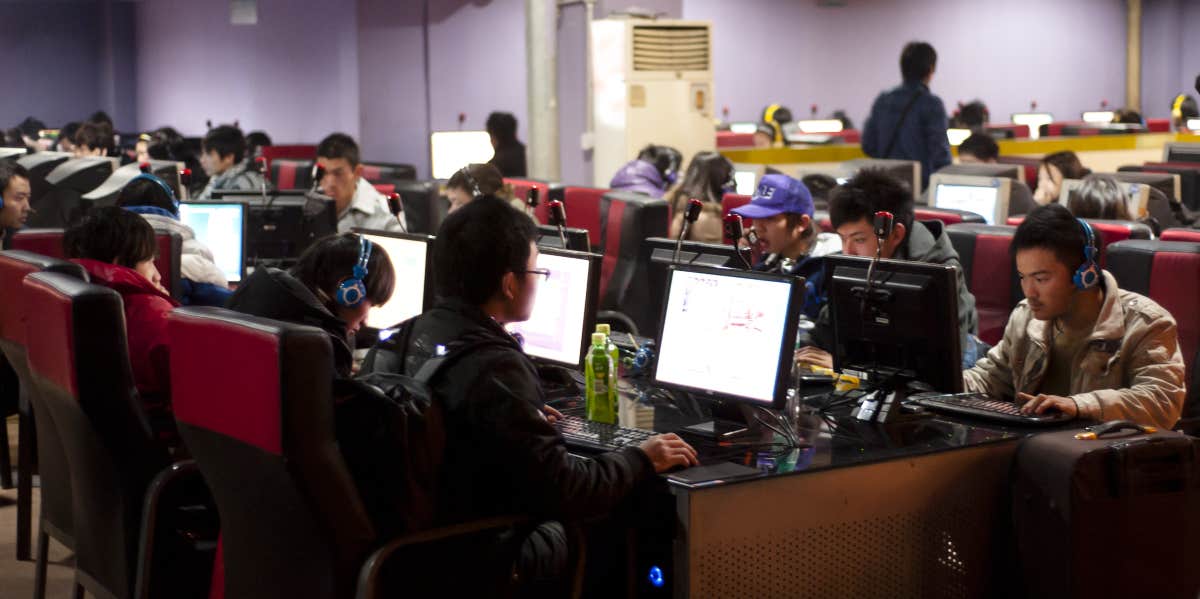Why Teens In China Are Now Limited To 3 Hours Of Gaming On Weekends — And None On Weekdays
Could American teens handle these rules?
 pcruciatti / Shutterstock.com
pcruciatti / Shutterstock.com China's strict rules on minors playing video games have gotten even stricter.
According to the new rules released by the National Press and Publication Administration, the Chinese government has tightened its restrictions on gamers under the age of 18.
Young players are now restricted to playing for a limited time over the weekend — they’ve banned weeknight gaming and now allow kids to play games for one hour, 8 to 9 PM, Friday, Saturday and Sunday.
Previously, children could play for 90 minutes on weekdays and 3 hours a day on weekends.
Why did China ban video games for minors on weekdays?
Chinese authorities and parents all over the country are worried about video game addiction among newer generations.
“Recently many parents have reported that game addiction among some youths and children is seriously harming their normal study, life and mental and physical health,” the administration said in an online question-and-answer explanation about the new rules.
Many parents, the administration claimed, “reported that their children had big changes in their temper and personality after becoming addicted to games, even as if they had become another person.”
This is an issue that China has been struggling with for years. In 2018, a rise in reports of nearsightedness was a large concern.
China is trying to combat video game addiction.
In their efforts over the years to combat video game addiction, they’ve set up clinics that combine therapy and military drills for those with so-called "gaming disorders".
Previous restrictions that were passed in 2019 allowed no more than 90 minutes of gaming during the weekdays, and three hours a day for the weekend — including a monthly spending limit of in-game items ranging from $28 to $57 depending on age.
Parents believed that the previous restrictions were too lax, according to the NPPA, and that they wanted the government to take more responsibility in enforcing the rules.
The Chinese government is now working closely with the largest video game companies in the country in order to set up identity verification on the client-side of the video games that kids are playing.
Gaming companies will put real name verification systems in place, as well as entering their national identification numbers, and all titles will eventually need to be connected to an anti-addiction system being set up by the NPPA.
They will increase the frequency and strictness of inspecting video games adding that over 10,000 video game titles have already been reviewed last year.
Teens would often circumvent these systems by logging into games with their adult family members’ credentials — which is still possible.
“Some teenage kids just won’t listen to their parents’ discipline, and this policy can control them,” said Lily Feng, a company worker in Shenzhen in southern China.
The hope is that through this combined effort, they’ll be able to tackle the issue — but is it really an issue to begin with?
Here’s what Chinese teenagers and the companies have said about the ban.
"This group of grandfathers and uncles who make these rules and regulations, have you ever played games? Do you understand that the best age for e-sports players is in their teens?" said one comment on China's Twitter replica, Weibo.
"Sexual consent at 14, at 16 you can go out to work but you have to be 18 to play games. This is really a joke."
Large game companies like Tencent have hardly seen an impact on their stocks — losing somewhere between a 1% to 3% value — but are worried about the long-term effects this may have on their profits.
"The root of the problem here is not the immediate revenue impact," said Mio Kato, an analyst who publishes on SmartKarma. "The problem is that this move destroys the entire habit-forming nature of playing games at an early age."
Microtransactions are a large part of revenue for many online gaming companies.
The dreaded “loot box” gambling that plagues the United States as well, is an insanely profitable system that could be impacted if the more impressionable players (teenagers) don’t form those habits.
"This is a family education issue, not a gaming issue," said a 17-year-old gamer who wanted to be known only by her surname Luan.
While infractions aren’t legally punishable, the hope is that video game addiction can be eradicated or at least lessened, and it’s unlikely that these restrictions will be lightened any time soon.
Isaac Serna-Diez is a writer who focuses on entertainment and news, social justice and politics.

